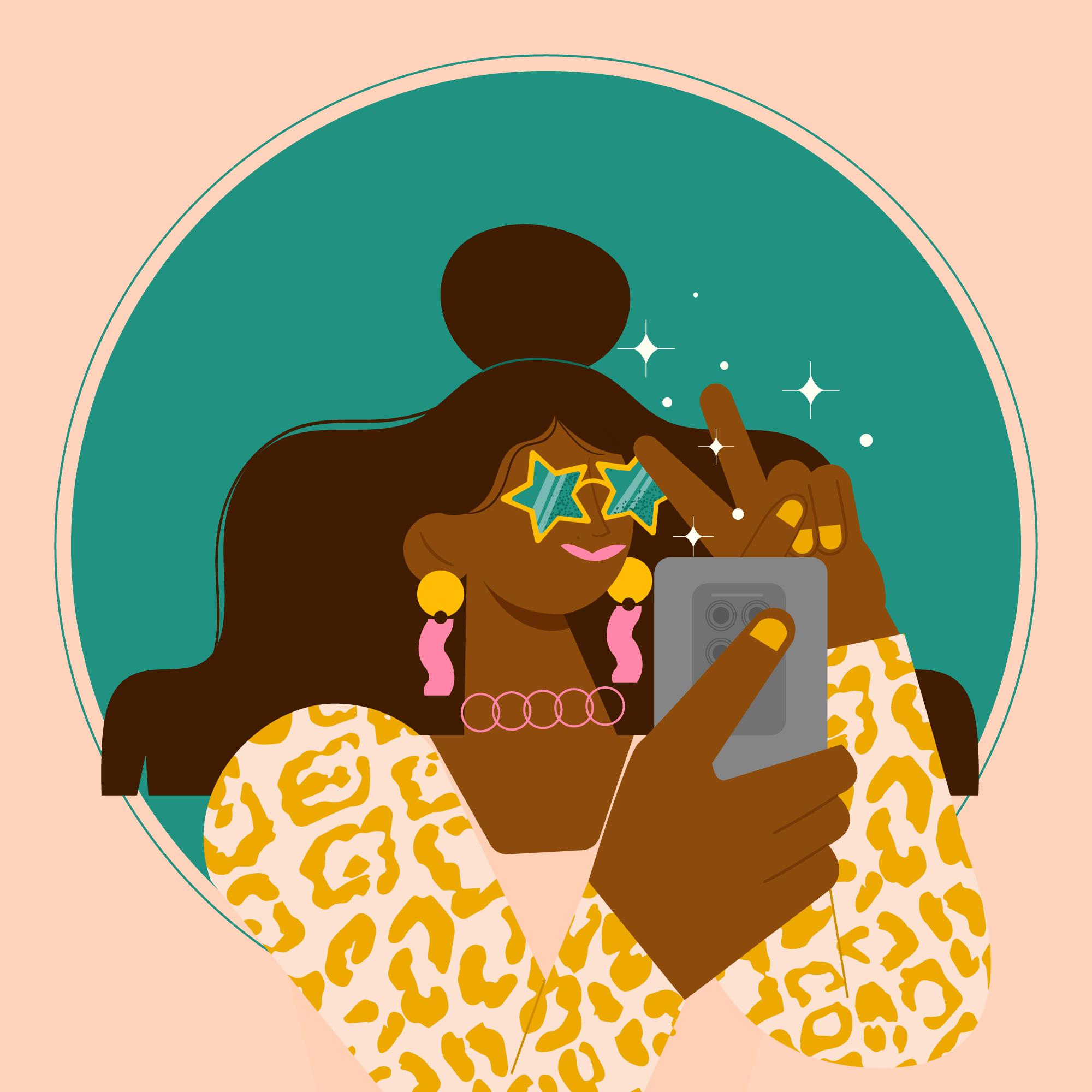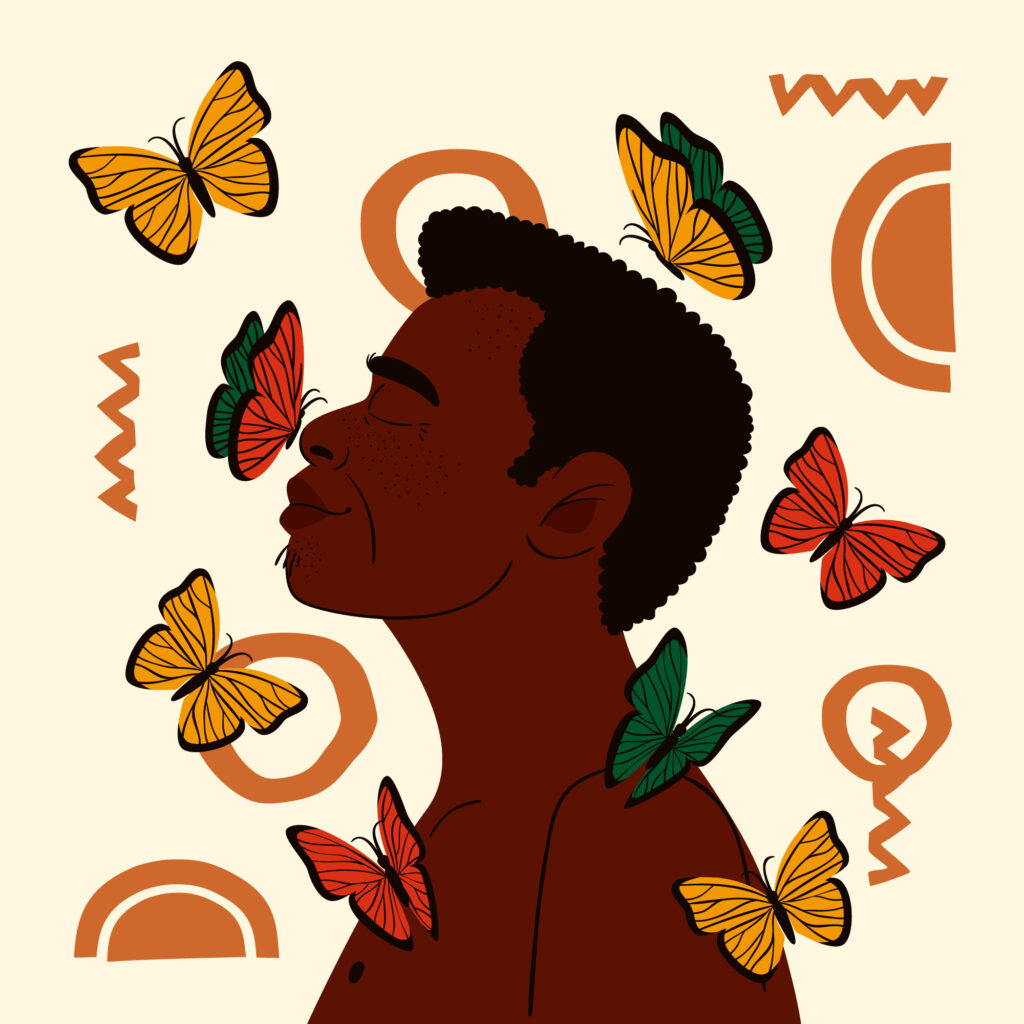Explore art's impact on mental health for Black teens this Black History Month. Celebrate with us the healing power of creativity and the legacy of Black artists. Get inspired and start your own creative journey.

Art has long served as a powerful vehicle for self-expression in the Black community. And studies show making art lights up the brain’s reward center, cuts stress and anxiety, and boosts your overall vibe.
This Black History Month gives us the chance to celebrate both with a spotlight on the impact Black Americans have left on the arts community and highlight how creative expression can uplift our spirits and help heal trauma.
First let’s talk about how helpful art can be for your mental wellbeing. Research shows engaging in art can trigger a cascade of positive effects in our brains. It’s like a natural stress-reliever, it’s known to reduce anxiety levels and can help in improving our mood.
Art can also help us process or feel more in control of difficult situations by working through them by creating.
As the legendary black poet Maya Angelou wrote, “You may not control all the events that happen to you, but you can decide not to be reduced by them.”
As Angelou wrote, no matter what hardships we face, we have the power to lift ourselves up through art rather than be weighed down.
And that means everyone. You don’t have to be a Basquiat, Toni Morrison or Nina Simone to reap the mental health perks of art. Whether you’re a renowned painter, an amateur phone photographer, or someone who just likes belting Beyoncé hits in the shower, creative acts let our inner light shine through and can help you turn your pain or frustrations into power.
Baltimore artist Larry “Poncho” Brown spoke of how one of his pieces of art was inspired by a resilience amid a devastating fire at his studio and symbolized the strength to address mental health challenges. Brown, a full-time artist, said that his art in many ways gives him more therapy in a day than most people get in a lifetime.
“I’m blessed to have found art as a place of reflection, a place of peace. It’s another space you can go to in order to release tension.”
Larry “Poncho” Brown
In naming the theme for Black History Month as a celebration of the arts, the Association for the Study of African American Life and History, recognized how “African American artists have used art to preserve history and community memory as well as for empowerment.”
“For centuries Western intellectuals denied or minimized the contributions of people of African descent to the arts as well as history, even as their artistry in many genres was mimicked and/or stolen.
However, we can still see the unbroken chain of Black art production from antiquity to the present, from Egypt across Africa, from Europe to the New World. Prior to the American Revolution, enslaved Africans of the Lowcountry began their more than a 300-year tradition of making sweetgrass baskets, revealing their visual artistry via craft.”
ASALH
It is true that art is storytelling in its own way and can leave a legacy behind. It can also inspire your mood, connect you to your culture and remind of you of the progress that has been made.
Below, we want to share with you a list of some of the artists being explicitly celebrated by this theme and invite you to explore their music, paintings, poetry and cinema to inspire you. We’ll share links to some of their best-known works.
Get inspired and then we’ll give you some suggestions for how you can use art to help your own wellbeing.
Robert Johnson, McKinley ‘Muddy Waters’ Morganfield, and Riley “BB” B. King: Listen to these Influential blues musicians known for pioneering a style of music that laid the foundation for gospel, soul, and other genres.
Phillis Wheatley: A poet whose works made her one of the earliest African American authors.
David Walker and Maria Stewart: Writers known for their essays, autobiographies, and
novels, contributing to black literature.
Edmonia Lewis: A sculptor known for her neoclassical works.
Henry O. Tanner: A prominent painter who gained recognition for his depictions of religious and biblical subjects.
James Reese Europe: An influential musician and bandleader.
Langston Hughes: A renowned poet, novelist, and playwright.
Josephine Baker: An iconic dancer and entertainer.
Lois Mailou Jones: An accomplished painter known for her contributions to the Harlem Renaissance.
Alvin Ailey: A choreographer and dancer who founded the Alvin Ailey American Dance Theater.
Judith Jamison: A prominent dancer and choreographer.
Amiri Baraka: A writer, playwright, and poet who played a key role in the Black Arts Movement.
Nikki Giovanni and Sonia Sanchez: Noted poets and writers associated with the movement.
DJ Kool Herc and Coke La Rock: Pioneers of hip-hop music, originating in the Bronx in 1973.
Sun Ra, Rashan Roland Kirk, Janelle Monáe, and Jimi Hendrix: Musicians whose work incorporates elements of Afrofuturism.
Octavia Butler: A renowned sci-fi writer known for her Afrofuturist novels.
Lina Iris Viktor, Wangechi Mutu, Nalo Hopkinson, and Grace Jones: Visual artists and writers who have explored Afrofu turist themes in their work.

Image by pikisuperstar on Freepik
Now that you’ve gotten a taste of those who have come before you, think of some of your own favorite black artists. What do you love about how they express themselves? Is there something about their work you’d like to try?
Remember part of the joy of art is simply in creating and doesn’t have to do with “how good” the end result is. The journey and creativity are just as much part of the process of helping boost your mood.
Try your hand at some of these art activities that can help bring your stress levels down. Think about if you can make any of these themed for Black History Month too. Maybe create a playlist of your favorite black artists.
No matter what, the key is to keep it simple. Try one of these. Think of how you feel before you start. When you’re done, notice if you feel any different.
Disclaimer: This website offers general information and is not a substitute for professional advice. We are not clinicians or trained professionals; this information should not replace seeking help from a qualified healthcare provider. Please consult a healthcare provider for personalized guidance.
Image by pikisuperstar on Freepik.